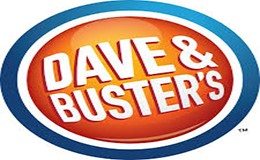SaulPaul is a musician with a message. Not only does this Austin rapper write songs with uplifting lyrics, but he spends a good part of the year visiting schools and talking to students about big subjects: what’s important in life, how to set goals and the importance of following your dreams.
He knows something about goals and dreams. He has two TED talks under his belt.
In 2017, he was named Austinite of the Year by Austin 40 under 40. He’s featured in the song “Mo’ Math Mo’ Money,” which encourages students to enroll in higher-level math courses. And at this writing, his song “Rise” has appeared on the Sirius XM charts for nine weeks straight.
“It’s great that I’m at this place in my career where I can speak with authority,” he says. “That carries more weight, especially with young people.” SaulPaul spoke with us recently about his music and his latest album, “We Dream in 3D.”
AFM: What was your experience growing up?
SaulPaul: My mom passed away when I was 3 years old, and my father was already gone, so I never met him. My grandmother raised me. She was awesome. But she was 65 years old, raising a 3-year-old. I didn’t appreciate it. She was old, I was young. She was slow, I was fast. She was soft-hearted, I was hard-headed.
I grew up poor, but I just knew we weren’t wealthy. Anything I needed, I always had. I might not get everything I wanted, but anything I needed, she would make it happen. She always looked out for other people. She would just serve people, love people, give and never judge.
I never doubted that she loved me, and I didn’t doubt that I could do anything that would make her love me less. That gave me a sense of security. These things are key.
That’s why I’m passionate about young people, because my grandmother provided that for me. And I realize that even if someone has a mom and a dad, or whatever their circumstance is, they may not have that.
AFM: How did you get into music?
SaulPaul: My grandmother passed away when I was 17. I came to UT and I started making bad choices, because I was kind of skating by on talent. Education just came natural, but I wasn’t applying myself. I made a lot of bad choices and got sent to prison. And I had a conversation with myself. “So, self, how’s this working out? We’ve got to do something different.” Because my choices led me here.
And that empowered me, when you take responsibility for your choices. You can’t change what you don’t own. And bad choices equate to bad results. Better choices bring better results. So I got out of prison and back into UT, against all odds. And I graduated with a 4.0. I went from four felonies to a 4.0.
I stumbled across my talent. I always had a guitar in the house, but I just listened to music. I consumed it. I would say, “I’m a professional listener.” Then some years ago, I started to freestyle. Something clicked, and it was like, “Oh, I think this is what I’m born to do.” I noticed whenever I would do music, there was just a certain response to it. Everybody would stop, look and listen. I already had the passion for it, then I started to realize it was actually valuable. I thought I could use this as my platform to change the world.
AFM: What was your vision for the album “We Dream in 3D?”
SaulPaul: I’ve been a children’s entertainer and youth speaker for over a decade. I’ve served nearly a million youth in the last 10 years but I never explicitly produced a children’s album. So, I created an album that was for youth, that featured youth. I wanted kids to have an album they could call their own, an album full of great hip hop, great songs, great beats, great content minus all the junk.
I’m big on opportunity. So, I featured Alexia Finney [in the song “Rise”] and half a dozen other young people on the album, because I’d been telling young people, “Dream in 3D. Make your dreams reality. You don’t have to wait.” And here was a chance for me to prove it.
AFM: What do kids tell you that your music means to them?
SaulPaul: I perform for elementary school students, middle school students and high school students. When I share my story, so many can relate to it. From having parents that are incarcerated, parents that are deceased, challenges. So many kids have cried, happy and sad tears when they get to share, to create that safe space and to normalize it. The simple answer is that kids say it means the world to them. It’s cool that it creates that space – as music should – it gives a voice to how they feel.
AFM: What do you want people to remember about you?
SaulPaul: That I loved and served people. Someone was telling me what the song “Rise” means to them, that’s it’s so positive. But that’s the thing about hip-hop: if you do it right, it’s a reflection of the individual. There’s a lyric, “Put your hands in the sky, wave ‘em side to side, we ain’t going nowhere, we’re just waving ‘bye ‘bye to all of the haters.” That’s what it’s about: not engaging in the hate, not hating back. Just moving beyond that. I want people to know that you can rise above. Play the game different. You can still win. And you don’t have to perpetuate the same, especially if the same is something you think isn’t ideal.
By Sherida Mock















